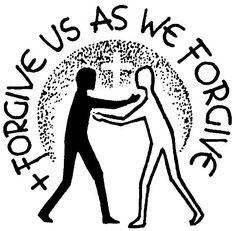Forgiveness, Part III

Two weeks ago, our post weighed the consequences of unforgiveness and found that it is to our advantage and well-being to forgive those who offend us.
Last week, our post dealt with how to forgive and how to take authority over our emotions, bringing them into alignment with God's purposes. So, that takes care of past offences. But what about the future?
Going forward, how do we handle offences and conflicts? Are we doomed to our prior cycles of getting offended, harboring a grudge and then becoming exhausted by it until we finally make it right? Or, does God have something better in mind?
The answer is yes, he does! This post will look at how God instructs us to handle offences/conflicts going forward. For many of us, that will be different from how we have handled them in the past. It is not God's will for us to be trapped by offence; rather it is his will for us to handle the offences that come our way in a manner that brings glory to him and blessing to us.
Luke 17:1 -Then said he unto the disciples, it is impossible but that offences will come: but woe unto him, through whom they come!
To be sure, offences are coming. So what do you think – are offences a negative thing? If you could make them disappear, would you? I think most of us would eliminate them from life entirely, if we could. Yet, God doesn't do that. Why does he allow offences to come?
Before we get to that, let me make this significant point: offences are a temptation for us to sin, and as such, God does not cause them.
James 1:13-14 - When tempted, no one should say, "God is tempting me." For God cannot be tempted by evil, nor does he tempt anyone; but each one is tempted when, by his own evil desire, he is dragged away and enticed.
Offences do not come from God; they stem from our own evil desires. However, God will use them as teaching and growing moments.
God has big plans for the offences/conflicts that come your way.
God uses the pressure of conflict/offence to help you grow and mature spiritually. God's highest purpose for you is not to make you comfortable, wealthy or happy in this life. If you have put your faith in him, he as something far, far more incredible in mind for you – he is working to conform you to the image and likeness of Christ and offence is one of the tools God will use to accomplish his purpose for you.
If we are aware of that, if we are looking for it, we can quickly begin to manage offences/conflict instead of allowing it to managing us. When conflict comes, take your eyes off yourself, and look to God. Figure out what he is trying to change in you, and work with him, not against him!
Conflict/offence provides an opportunity to sin, but it also provides an opportunity to glorify God. It gives us a chance to bring Him praise and honor by showing who He is, what He is like and what He is doing. We can glorify God in the midst of conflict by drawing attention to him - his undeserved love, mercy, forgiveness, strength and wisdom. We can be an encouragement to our brothers and sisters, or a witness to the lost if we handle conflict correctly.
II Corinthians 6:19-20- (God) has committed to us the message of reconciliation. We are therefore Christ's ambassadors, as though God were making his appeal through us.
What an honor to be made Christ's ambassador; to represent him in the world! The lost around us are in desperate need of the true savior, Jesus Christ. Most likely, you will not get them to listen to a sermon. However, they can't help but pay attention when they see Christ reflected through you – through the way you think, the way you speak, the way you act, and the way you react to others, particularly when handling offences. Actions speak louder than words.
In the past, offences have been all about us - how we were wronged, how we suffered, how we were not treated fairly, etc. All of our focus is directed toward me, me, me. Here's a radical idea: Can we turn our thinking upside down? Rather than seeing ourselves as a victim in any given offence, let's begin to see ourselves as God's ambassador or God's steward in that offence.

What does a steward do? He manages something according to his master's instructions, always looking out for the best interests of his master.
Sometimes the steward manages good things like big harvests or profitable business deals or lavish parties. But he also manages problems and difficulties like coyotes killing the cattle, or labor strikes, or 'we're out of wing sauce', or whatever the problem may be.
I dare say that if you are like me, there are areas of your life where you are the best steward on the planet. You do certain things very well, every single time. They may not even be a challenge anymore.
But there are other areas that we are not really managing at all. Those situations are managing us. For many, forgiveness/handling offence is one of those areas. What do we need to learn about managing offences? A good first step is to see if the offence is a door for you to serve and help others.

Perhaps you have a next door neighbor who is always causing conflict by not raking his leaves in the fall. His dead leaves blow into your perfectly manicured lawn and you are stuck with them.
You can be offended and unforgiving in this situation, if you choose. You can replay the offence in your mind, dwelling on how unfair it is to you. You can retaliate or gossip about your neighbor, making a mountain out of the mole hill. Satan would love it if you handled your conflict this way.
Or, you can approach your neighbor and ask about the situation, face to face, neighbor to neighbor, in a nonjudgmental way. You may be surprised by the situation your neighbor is experiencing. Maybe a health problem is preventing him from raking the leaves. Maybe he is emotionally distraught by a family tragedy and he needs a Christian to offer him hope and salvation.
You see, God may give you an opportunity to carry your opponent's burdens whether spiritual, emotional or material. I understand that is contrary to the world's view of "look out for number one", but God's ways are not our ways.
What if you offer to help rake the leaves and that simple act of loving your neighbor opens the door to share the love of Christ?
My point is this: God has plans for the offences in our lives. Let's start stewarding/managing those offences in a way that brings glory to God and blessing to us.
You should know that offences fall into one of two categories:
Material – this category involves property, money, rights and responsibilities. (Should we build a new church? How much money does Lancelot owe me? Did Sally breach the contract?)
Personal – this category relates to what goes on inside or between persons. (You are trying to cheat me. I don't like the way you are criticizing me. You are unreasonable and stubborn, you're treating me badly because you're jealous.)
It would be nice if these two were always clearly separated, but in many offences or conflicts, they will both be present.
Luke 12:13-15 - And one of the company said unto him, Master, speak to my brother, that he divide the inheritance with me. And he said unto him, Man, who made me a judge or divider over you? And he said unto them, Take heed, and beware of covetousness: for a man's life consists not in the abundance of the things which he possesses.
In this case, both types of offence or conflict are present. The material conflict is how the family inheritance should be divided. The personal conflict is the brother's greed and estrangement over the inheritance.

Here is a key: You always want to handle the personal issues first, because it will take both of you working together to resolve the material offence.
In our biblical example, each brother is being stubborn and greedy. Until they forgive each other and reconcile, they won't be able to settle the estate. If they fail to reconcile, they may end up in court which will probably permanently sever their relationship and cost them a bunch of the inheritance anyway.
So, step one is finding the point of personal offence. The next step is to decide if the offence is a minor one that can be overlooked, or a major one that cannot.
Overlooking minor offences
Proverbs 19:11- A man's wisdom gives him patience; it is to his glory to overlook an offence.
Proverbs 12:16 - A fool shows his annoyance at once, but a prudent man overlooks an insult.
It's Biblical to overlook or let go of a minor offence. How do we determine if it is minor?
Ask yourself these questions:
- Is this really worth fighting for?
- Is this sin bringing significant dishonor to God?
- Is it damaging your relationship (does it happen repeatedly,as opposed to a one time/pushed-over-the-edge scenario)?
- Is it resulting in significant harm to others?
- Is the sin causing significant harm to the offender?
Based on these criteria, decide if you can overlook the offence or if you need to pursue resolution.
In our biblical example of the two brothers, is the personal offense a minor one? No, it is not. The brothers are both greedy and they are fighting over the family money. Their relationship with each other is broken. Is that bringing dishonor to God – Yes. Is it damaging their relationship – yes. Is their relationship as brothers worth fighting for – yes. So, they should not let this offence go. They should work to resolve it and once this offence is ironed out, they can proceed to divide the estate.
In our example of the neighbors, is the personal offence a minor one? Yes, it is. One neighbor is allowing his leaves to blow into another neighbor's lawn. Is this an issue that is really worth fighting for – no. Is this sin bringing significant dishonor to God – no. Is it resulting in significant harm to others – no. It is a minor offence. The neighbor should let this go, and move on to seeing how he can use this as an opportunity to exemplify the love of Christ.
If you decide to overlook the offence, do you suppose you can just put it behind you and that will be that? The answer is yes, especially after some practice. But be aware that you also may find the enemy knocking at the door of your emotions trying to upset you.
And what do you do when Satan comes and tries to trick you into going back to old habits? The solution is pretty much the same thing that we looked at last week for letting go of old offences which was found in Philippians:
Philippians 4:2-3 - I entreat Euodias, and I entreat Syntyche to agree in the Lord. Yes, I ask you also, true companion, help these women who have labored side by side with me in the gospel.
These two women are having some kind of offence/conflict which does not appear to be major. Perhaps they are trying to overlook it, but Satan is hindering them. What does Paul tell them to do?
Philippians 4:4 - Rejoice in the Lord always: and again I say, Rejoice.
Tell the Lord that you want to overlook the office, then begin to praise God for the good in your life. When you begin to praise God, those negative feelings disappear because they can't hang out with thanksgiving.
Let's suppose that some dead leaves blow into your yard on Monday. You overlook that and move on. But by Tuesday morning, there are more. And there are more on Thursday and Friday. Each time, it gets harder to put the offence behind you. You can gain victory by praising God for all the good in your life, like your home, your health, your job, etc. Once you begin to praise God, the leaves will once again be reduced to the minor offence that they really are and you can put them aside.

So again, if it is a minor offence and you decide to let go, give it to God and then turn to praise. Any resistance to forgiving will disappear because delving into prayer and praise puts you in God's presence. Your anger and hurt will soon disappear, and the peace of God will descend on you.
That's how we overlook an offence. However, there will be cases where you cannot overlook. Sometimes an offence has to be addressed. If that is the case, how do we biblically handle that?
Pursuing resolution for offences that are not minor.
First of all, pursing resolution is clearly biblical.
Matthew 18:15-16 – If your brother sins against you, go and tell him his fault between you and him alone. If he listens to you, you have gained your brother. But if he does not listen, take one or two others along with you, that every charge may be established by the evidence of two or three witnesses.
When pursing resolution, speak with your adversary first. In other words, go directly to your brother. Do not pass 'GO'. Do not stop at "Gossip Corner" or "Revenge Ave" or "Mocking Lane".
Keep your mouth shut, unless you are speaking directly to the person involved in the matter. Tell the person that you are offended by something they did. Try to clear the air with them. The best case scenario is that the two of you will resolve the situation on your own, just between you.
However, if they are unwilling to resolve the matter, take the next step and bring in an impartial Christian to help facilitate the healing process. A church pastor or elder is a good choice. The general principle here is to involve as few people as possible for as long as possible.
What is the role of the mediator? His primary role will be to help you and your opponent make the decisions needed to restore peace. They may simple facilitate communication, they may examine the facts themselves and gather additional information. They may give advice or offer biblically based solutions to the problem. They may encourage repentance and confession on both sides of the dispute.
If the situation is still not resolved, they become witnesses and should report the situation to the church, according to Matthew 18. That does not mean standing up on Sunday morning and airing all your grievances in the Sunday service. It means telling the leadership of the church about the problem, so they can assist in promoting justice and peace.
Keep this in mind: According to Matthew, the church's decision is intended to be binding on its members, whether they like it or not, so do all you can not to arrive at this point.
The issue of forgiveness is one that touches us all, and will continue to impact our lives until the day we are called home to be with Christ. In the past, we may have responded to offences and conflict on an emotional basis, which often results in unforgiveness, gossip, bitterness, broken relationships and loss of peace and material possessions. It will destroy those closest to us and it can even render us unusable by God.
Let me give you some relief: You no longer have to be burdened or bound by offenses. Following the principles outlined in the bible, we can be set free from offences and live in peace.
Let me offer you some encouragement:
You are an over comer! You can manage your offences, instead of your offences and emotions managing you. What was once a weakness in your life can be turned into a strength.
Let me give you some strength:
It is time to begin dealing with offence and conflict biblically. In so doing, our conflicts, those things which used to destroy us, can actually become opportunities to minister to others and to show the world the love of Christ. They can also be used by God to make us mature and aid in the growth of fruit in our lives. What an amazing turn around that will be!
